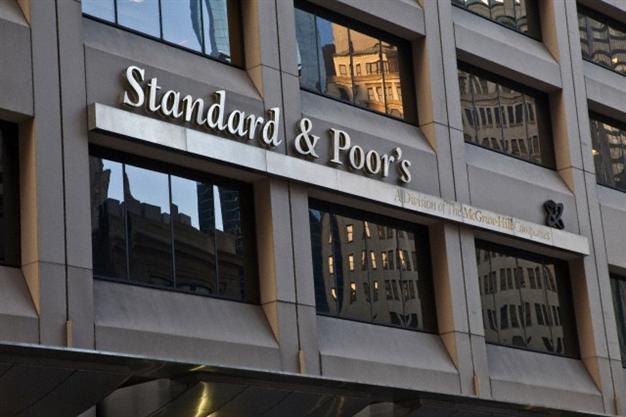S&P warns of ‘checks and balances erosion’ in Turkey, but affirms rating
ISTANBUL
 International ratings agency Standard & Poor’s has affirmed its rating on Turkey at BB+, but kept it within the junk territory, citing poor political management.
International ratings agency Standard & Poor’s has affirmed its rating on Turkey at BB+, but kept it within the junk territory, citing poor political management.“In our view, the authorities have not used fiscal and monetary policy settings consistently enough to build up buffers against potential external risks,” the agency said in a statement.
“Furthermore, we believe the limited policy buffers have also partly stemmed from an erosion of institutional checks and balances,” it added.
According to the S&P analysts the erosion poses risks to business confidence and economic stability.
“A crowded electoral calendar and an uncertain external environment make many of our forecasts
highly contingent on investor confidence in the policymaking framework,” it also said, but remained optimistic that authorities would not give up steady fiscal and monetary outcomes.
However, the agency argued it did not see any need for a reduction in the credit rating, betting on its base-case scenario that the Turkish economy is gradually rebalancing as export growth improves.
“The economy is benefitting from the portion of nominal exchange rate depreciation that Turkey has not yet lost to higher relative inflation,” the agency said, as for the stronger sides of the economy.
The agency also issued a warning against the fiscal weaknesses of the country with towering debts and potentially rising refinancing rates.
“Between 2009 and 2013, gross financial sector external liabilities increased 3.2 times to $178 billion. This is equivalent to an annual inflow of nonresident lending to the financial sector of 4 percent of GDP per year,” the statement read.
“If the external financing environment were to deteriorate, rollover rates on this stock of debt – 60 percent of which we estimate is short term – could decline below 100 percent and refinancing rates could rise significantly,” the agency warned.
The agency also noted it sees Turkey’s external vulnerabilities less manageable due to Turkish companies’ “sizeable and partially unhedged” foreign currency position, “still sizeable” current account deficit, uncertainty in global economic environment and “a high pass-through of exchange-rate depreciation into inflation.”
The S&P also said it had marginally raised its base-case forecast for 2014 GDP performance to just under 3 percent, but without improving the expectations for long-term growth.
“Our view takes into account the deceleration in credit growth, currently running at a 13-week average of 15.5 percent (annualized weekly change) and forecast to drop below 10 percent in 2015,” the statement said.
“Absent credit-fueled growth, we see Turkey’s growth potential as curtailed until structural changes take place. Such changes could include higher net foreign direct investment into the tradables sector; continued increases in labor participation and improved labor flexibility; and improved productivity and value-added in the economy,” the agency said.
















